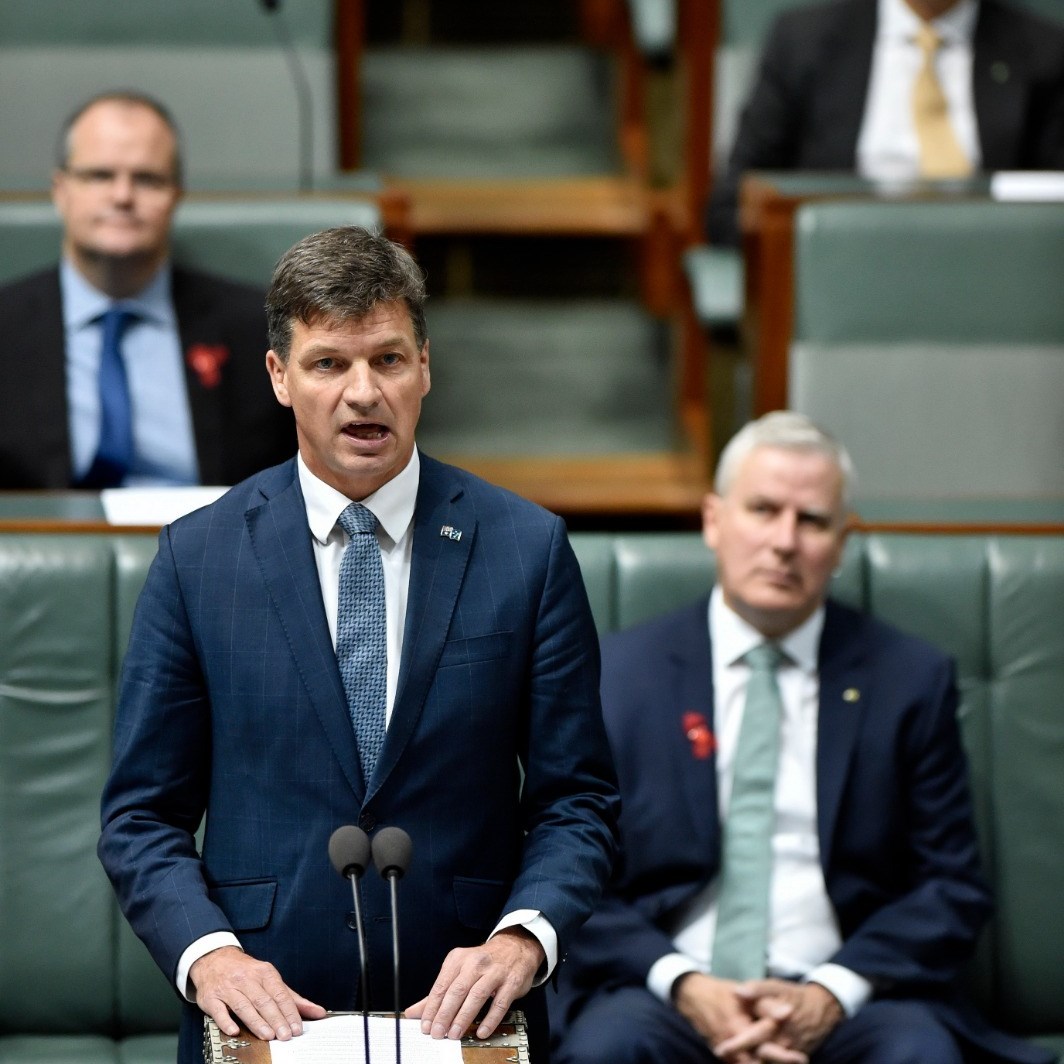Australia’s commitment under the Paris Agreement, which came into force in 2016, is to reduce greenhouse gas emissions by 26-28% on 2005 levels by 2030.
The Australia’s emissions projections 2020 report, compiled by the Department of Industry, Science, Energy and Resources, shows emissions are projected to decline 22% on 2005 levels by 2030, well short of the Paris target.
But new long-term projections have been recalculated taking into account the Federal Government’s Technology Investment Roadmap, the continued uptake of rooftop solar, and development of hydrogen and carbon capture and storage industries.
The new figures, released on Thursday, indicate Australia is on track to meet and beat its 2030 emissions reduction target by 145 million tonnes with emissions 29% below 2005 levels by the end of the decade.
Minister for Energy and Emissions Reduction Angus Taylor said over the past two years Australia’s 2030 position had improved by 639 million tonnes – 13.2% of the emissions budget. This is equivalent to taking all of Australia’s 14.7 million cars off the road for 15 years.
Taylor said the data illustrates Australia is playing its part in the global response to climate change by meeting and beating its international emissions targets but Greenpeace Australia Pacific CEO David Ritter said the government’s projections are following a poorly sketched roadmap to the wrong destination.
“The Federal Government’s Technology Roadmap relies on unproven, expensive technology such as carbon capture and storage, rather than proven, reliable solar and wind,” Ritter said.
“The Federal Government’s self-appointed emissions reduction target is woefully inadequate. We need to be aiming for net-zero emissions by 2040. The Federal Government is aiming for a low-ball target and patting itself on the back while Australia faces a climate crisis.”
Climate Council CEO Amanda McKenzie said the new data is a step in the right direction but said state governments deserve much of the credit, having led the way in reducing emissions.
“Without a coherent federal policy, state and local governments, business and the community have been implementing real change to reduce emissions. It is getting results,” she said.
“Imagine what we could achieve if the Federal Government implemented a credible climate policy to reduce emissions.”
The release of the annual emissions projections report comes with Prime Minister Scott Morrison scheduled to speak at a Pacific Islands Climate Forum event on Friday night.
He will also take part in a global climate action summit hosted by British Prime Minister Boris Johnson this weekend.
This content is protected by copyright and may not be reused. If you want to cooperate with us and would like to reuse some of our content, please contact: editors@pv-magazine.com.









By submitting this form you agree to pv magazine using your data for the purposes of publishing your comment.
Your personal data will only be disclosed or otherwise transmitted to third parties for the purposes of spam filtering or if this is necessary for technical maintenance of the website. Any other transfer to third parties will not take place unless this is justified on the basis of applicable data protection regulations or if pv magazine is legally obliged to do so.
You may revoke this consent at any time with effect for the future, in which case your personal data will be deleted immediately. Otherwise, your data will be deleted if pv magazine has processed your request or the purpose of data storage is fulfilled.
Further information on data privacy can be found in our Data Protection Policy.